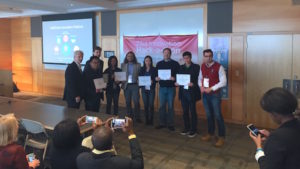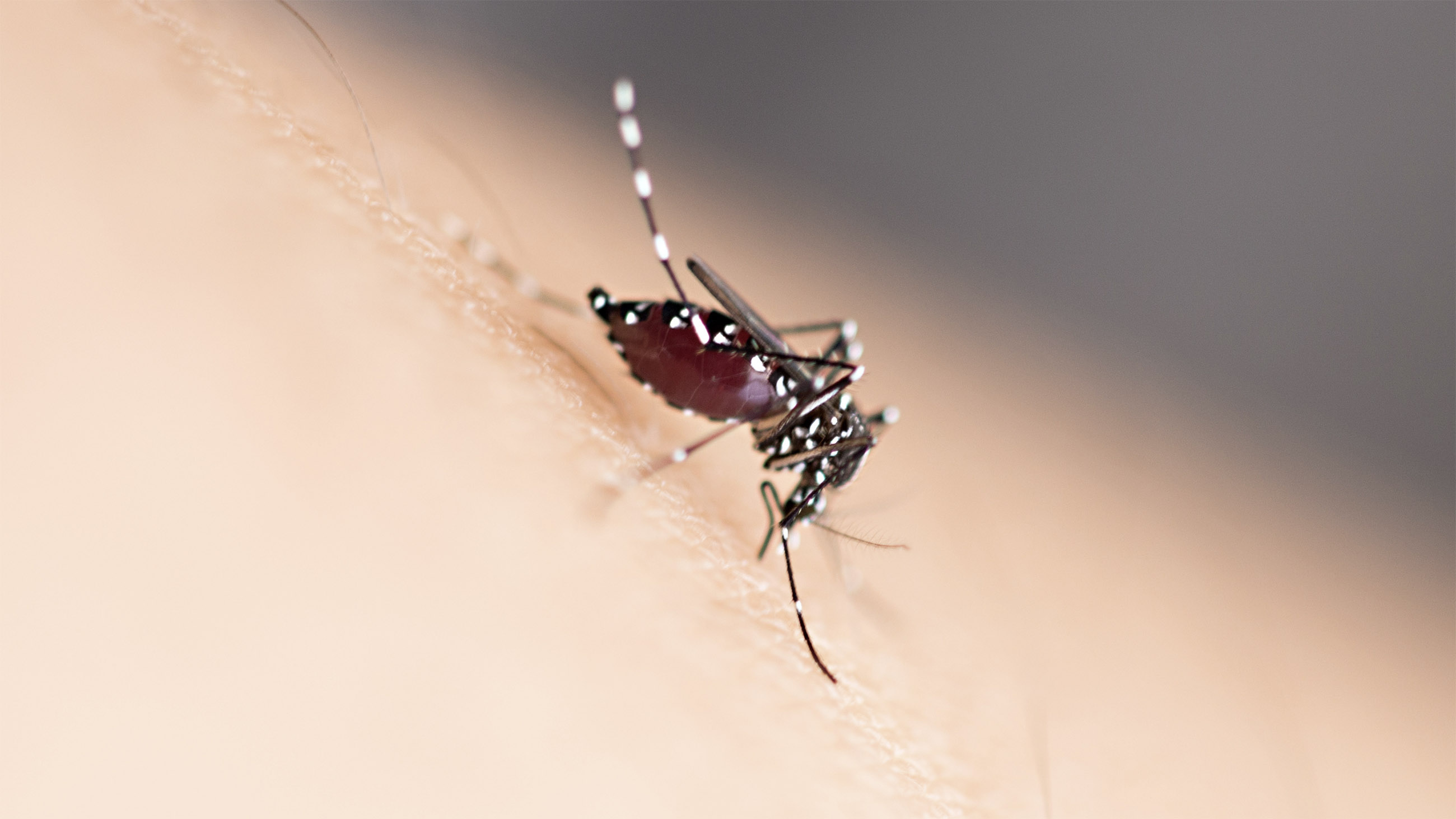Hacking the Zika Problem
Over the weekend, more than 100 clinicians, designers, engineers and public health experts gathered at Massachusetts General Hospital in Boston to present creative solutions to the challenges facing the dozens of countries currently fighting the mosquito-borne Zika virus. Fifteen multi-disciplinary teams presented a range of projects, from a children’s game designed to help eliminate mosquito breeding sites, to new Zika testing methods and an automated larvicide dispenser for water storage containers.
The event, organized by Mass General’s Center for Global Health, comes at a time when public health authorities are looking for innovative, cost-effective and culturally-appropriate ideas to help in the fight against Zika, which is spreading quickly across South and Central America.

One winning team designed an automated larvicide dispenser for water storage containers. Visual by Aleszu Bajak.
Meanwhile, health officials in the United States are becoming increasingly aware of the shortcomings of mosquito control efforts here, as well as the ineffectiveness of public education campaigns and the financial stress on infectious disease infrastructure. With summer and mosquito season approaching, fearmongering media coverage and incomplete public knowledge are hampering control efforts at a time when money is tight. Indeed, Congress has thus far refused to mobilize funding to combat the disease. And without rapidly deployable, scalable solutions, the virus could infect some 4 million people, according to current World Health Organization estimates.
“If people start panicking every time they get a mosquito bite, we’re going to be in a lot of trouble,” said White House deputy Homeland Security advisor Amy Pope, trying to impress upon this weekend’s meeting participants the gravity of mosquito-borne illnesses like Zika. She stressed the need for innovative, multi-disciplinary solutions: “The federal government just can’t take on a problem like Zika by ourselves. We couldn’t take on Ebola by ourselves. It’s too big for our resources.”
By Sunday afternoon, dozens of solution-based projects had been narrowed to just 15 — all developed by teams vying for one of three $1,000 prizes offered by the meeting’s organizers. Among the projects: A microscope attachment for a smartphone to collect geographically-tagged mosquito larva information; a centralized, open-access database for Zika-related data; and a drug-screening platform to identify molecules that might bind to Zika envelope proteins.
Will any of these project see the light of day? As with most so-called “hackathons,” the answer depends on how realistic and scalable they are. That was a sentiment echoed by Wendy Taylor, director of the Center for Accelerating Innovation and Impact at the U.S. Agency for International Development. She helped to organize the event and pledged to bring some of the best ideas to the White House next month.
“Bring the crazy ideas to the table,” Taylor told participants, “and then make sure you ground-truth them.”










